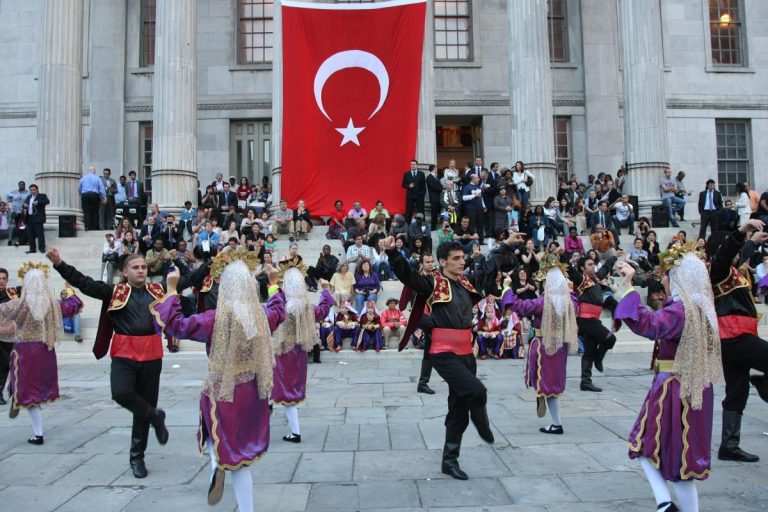Eviri culture has a long and storied history that dates back to the 17th century when the Ewe people migrated to present-day Togo from the east. These early settlers brought with them their rich cultural heritage, which was a fusion of West African, Middle Eastern, and European influences. Over the centuries, Eviri culture evolved and adapted, influenced by factors such as colonization, trade, and migration.
Colonization and Cultural Assimilation
During the late 19th and early 20th centuries, Togo was colonized by various European powers, including Germany, Britain, and France. This period marked a significant shift in Eviri culture, as colonial rulers attempted to impose their own customs and values on the local population. As a result, traditional practices and beliefs were suppressed, and many Eviri people were forced to assimilate into Western ways of life.
However, despite these attempts at cultural suppression, the Eviri people managed to preserve their cultural identity through oral storytelling, music, and dance. These forms of expression became powerful tools for maintaining a sense of community and passing down cultural traditions to future generations.
Modern-Day Revival and Preservation
In recent years, there has been a resurgence of interest in Eviri culture, both within Togo and abroad. This renewed appreciation for the culture has led to efforts to preserve and promote its traditions, giving rise to cultural festivals, workshops, and educational programs.
One example of this revival is the traditional “Agbogbo” festival, which celebrates the harvest season and is a time for honoring ancestors and renewing cultural ties. Other initiatives, such as the creation of cultural centers and museums, have also helped to keep Eviri culture alive for future generations.
Exploring the Customs and Traditions of Eviri Culture
The customs and traditions of Eviri culture are deeply rooted in the principles of community, spirituality, and respect for nature. They provide a framework for how people should live their lives and interact with one another. Let’s take a closer look at some of the key aspects of Eviri culture.
Community and Social Structure
In Eviri culture, community plays a central role in people’s lives. From birth to death, individuals are part of a larger network of family, friends, and neighbors who provide support and guidance. The extended family is also an essential aspect of Eviri culture, with multiple generations living together and sharing resources.
The social structure of Eviri culture is influenced by the concept of “age grades,” where individuals are grouped based on their age and given specific responsibilities and privileges within the community. This system promotes a sense of belonging and encourages individuals to work together towards common goals.
Spirituality and Ancestral Worship
Spirituality is a fundamental aspect of Eviri culture, with beliefs that are deeply intertwined with daily life. The Eviri people believe in a supreme being known as Mawu, who created the universe and governs all things. Alongside Mawu, there are numerous deities and spirits that play a significant role in the spiritual practices of Eviri culture.
Ancestor worship is also an essential aspect of Eviri spirituality, with the belief that ancestors continue to play a role in the lives of their descendants. Offerings are made to ancestors to seek their guidance and blessings on important occasions, such as weddings and funerals.
Modern-Day Influences and Impact of Eviri Culture
Although Eviri culture has stood the test of time, it has also been influenced by modern-day factors such as globalization, urbanization, and technology. With the rise of social media and the internet, people around the world have been exposed to the music, art, and cuisine of Eviri culture, leading to its widespread popularity.
Music and Dance: A Global Phenomenon
One of the most recognizable aspects of Eviri culture is its vibrant and energetic music and dance. The traditional drumming and dancing of the Ewe people have captivated audiences worldwide, with popular dance forms such as Kpalongo, Atsia, and Gahu gaining recognition and influencing other dance styles.
Moreover, modern-day artists have incorporated elements of Eviri music into their work, creating a fusion of traditional and contemporary sounds. This crossover has helped to bring Eviri culture to new audiences and create a global appreciation for its unique musical traditions.
Cuisine: A Taste of Eviri Culture
The cuisine of Eviri culture is a delicious blend of local produce, spices, and cooking techniques that have been passed down through generations. Traditional dishes such as “akple” (cassava dough), “gboma dessi” (spinach stew), and “abolo” (corn cakes) are staples of the Eviri diet and showcase the diversity and creativity of the culture.
In recent years, Eviri cuisine has gained popularity outside of Togo, with restaurants and food trucks serving up these flavorful dishes in cities around the world. This exposure has not only introduced people to the delicious flavors of Eviri culture, but it has also provided economic opportunities for communities in Togo.
How to Embrace Eviri Culture: Tips and Examples
If you’re interested in learning more about Eviri culture and incorporating its traditions into your life, here are some tips to get you started:
- Attend cultural events and festivals: Immerse yourself in the sights, sounds, and tastes of Eviri culture by attending local events and festivals. These gatherings provide an excellent opportunity to connect with the community and experience its customs firsthand.
- Learn a traditional dance or instrument: Dance and music are integral parts of Eviri culture, so why not try your hand at learning a traditional dance or instrument? It’s a fun way to connect with the culture and express yourself creatively.
- Cook and eat a traditional meal: As the saying goes, “food is the ingredient that binds us together.” Prepare a traditional Eviri dish and share it with friends and family. Not only will you get a taste of the culture, but you’ll also create cherished memories.
- Support local artisans: Many Eviri communities rely on traditional crafts such as weaving, pottery, and woodcarving as a source of income. By purchasing handmade items from local artisans, you can support their livelihoods and help to preserve these skills for future generations.
Examples of successful integration of Eviri culture into daily life can be seen in various forms, such as fashion, interior design, and language. The popular wax print fabric, known as “Vlisco,” is inspired by traditional African fabrics, including those used in Eviri culture. Additionally, many people have incorporated elements of Eviri art and decor into their homes, creating a unique blend of modern and traditional styles.
FAQs About Eviri Culture
- What is the significance of the Agbogbo festival?
- The Agbogbo festival is a celebration of the harvest season and a time for honoring ancestors and renewing cultural ties.
- What role do ancestors play in Eviri culture?
- Ancestors are believed to continue playing a role in the lives of their descendants, and offerings are made to seek their guidance and blessings.
- How has modernization affected Eviri culture?
- Modernization has brought about increased exposure and appreciation for Eviri culture, but it has also led to the erosion of some traditional customs and practices.
- Can non-Eviri people participate in cultural events and festivals?
- Yes, all are welcome to participate in cultural events and festivals. It’s a great way to learn more about the culture and connect with the community.
- Are there any traditional dishes that are unique to Eviri culture?
- Yes, dishes such as “akple” (cassava dough), “gboma dessi” (spinach stew), and “abolo” (corn cakes) are considered staples of Eviri cuisine.
In Conclusion: A Rich and Vibrant Cultural Heritage
In conclusion, Eviri culture is a fascinating and vibrant world that continues to evolve and adapt to the changing times. From its ancient roots to its modern-day impact, this culture is a testament to the resilience, creativity, and sense of community of the Eviri people. So, whether you’re looking to deepen your understanding of other cultures, or simply want to experience something new, exploring Eviri culture is an enriching and rewarding journey.



